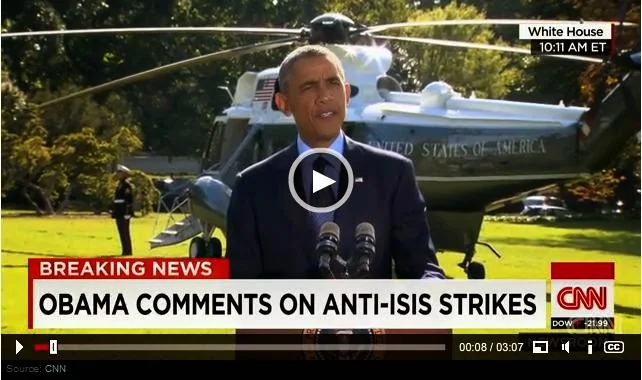An agreement regarding the route for the deployment of Peshmerga fighters to the besieged Syrian Kurdish town of Kobane has been reached and troops are on the verge of departing, officials from the Kurdistan Regional Government (KRG) told Anadolu Agency on Oct. 28.
The spokesman of the KRG’s Peshmerga Ministry said discussions had dragged on because of negotiations regarding the heavy weaponry that the troops from Arbil will bring to assist Kurdish fighters in Kobane in their struggle against the Islamic State of Iraq and the Levant (ISIL).
“All the preparations for our Peshmerga troops have ended. There were some technical issues for their departure. Now, all the planning and programming for their departure has concluded. They will depart as soon as possible,” KRG spokesman Halgort Hekmat said.
According to Kurdish security sources, the heavy weaponry will be conveyed by land while a group of fighters will fly to the southeastern Turkish province of Şanlıurfa before passing through a border corridor into Kobane.
Hekmat said the heavy weaponry sent to Kobane does not include any weaponry given by coalition forces. He also rejected claims that the Peshmerga would only be training and providing logistical assistance to Kurdish fighters.
“The Peshmerga will fight in Kobane against ISIL,” he said, also thanking Ankara for its efforts for facilitating the deployment of the Peshmerga troops.
Meanwhile, Kurdish online newspaper Rudaw claimed that a group of Peshmerga forces will leave Arbil for Şanlıurfa in the early hours of Oct. 29.
[ hurriyetdailynews.com]
28/10/14
The spokesman of the KRG’s Peshmerga Ministry said discussions had dragged on because of negotiations regarding the heavy weaponry that the troops from Arbil will bring to assist Kurdish fighters in Kobane in their struggle against the Islamic State of Iraq and the Levant (ISIL).
“All the preparations for our Peshmerga troops have ended. There were some technical issues for their departure. Now, all the planning and programming for their departure has concluded. They will depart as soon as possible,” KRG spokesman Halgort Hekmat said.
According to Kurdish security sources, the heavy weaponry will be conveyed by land while a group of fighters will fly to the southeastern Turkish province of Şanlıurfa before passing through a border corridor into Kobane.
Hekmat said the heavy weaponry sent to Kobane does not include any weaponry given by coalition forces. He also rejected claims that the Peshmerga would only be training and providing logistical assistance to Kurdish fighters.
“The Peshmerga will fight in Kobane against ISIL,” he said, also thanking Ankara for its efforts for facilitating the deployment of the Peshmerga troops.
Meanwhile, Kurdish online newspaper Rudaw claimed that a group of Peshmerga forces will leave Arbil for Şanlıurfa in the early hours of Oct. 29.
[ hurriyetdailynews.com]
28/10/14














 GR
GR FR
FR DE
DE ES
ES IT
IT RU
RU EU
EU